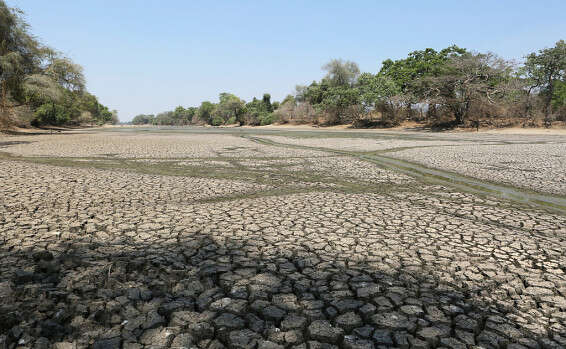Severe meteorological service report reveals worrying data • More than two degrees rise over the next century, reduction in rainfall and multiple heat waves
Temperature is expected to rise by two degrees in the next century // Archive photo: IP
In Madrid, there is the second day of the climate conference, which works to reduce greenhouse gas emissions and encourage global cooperation on the matter. An Israeli delegation, headed by Minister of Energy Steinitz, represents the state. Ahead of the conference, a meteorological service report was prepared, revealing alarming data.
According to the report, the average temperature in Israel has risen by about 1.4 degrees Celsius since 1950 and is expected to rise by about 1.2-0.9 degrees by the end of 2050, which means that an increase of more than two degrees Celsius is expected within a hundred years. The hot days and nights of the year, and a decrease in the frequency of cold days and nights, is an existing trend that is expected to continue.
Israel is drying up again
With regard to dryness, the report indicates that there will be a reduction in the amount of sediments of more than 25-15 percent by the end of the century. The downward trend in precipitation has existed in the last 30 years and is expected to continue.
More on:
• On the verge of drought? November has been going on since 2010
• "Israel Leads in Water Reuse, It's a Wonder"
• Climate Conference: Despite ambitions, environmental agreements suffer from a lack of enforcement
On the depletion of water sources, with emphasis on the Sea of Galilee, the report states that an increase in the prevalence and intensity of the heatwave is expected, peak precipitation events are expected, changes in geographic distribution of precipitation, and changes in frequency, intensity and precipitation events - a large amount of rainfall decreases in a short time.
In addition to all these, a gradual rise in the Mediterranean is expected. Expected impacts on climatic trends include estimates of river and wetland degradation, damage to ecosystem resilience and terrestrial and marine biodiversity, and human welfare ecosystem services, changing species migration patterns, increasing incidence of forest and woodland fires and infestation.
Island of Kinneret // Archive photo: IP
And what about public health? An increase in the incidence and intensity of heat waves is expected, a phenomenon that is aggravated in a dense urban space and known as urban heat island. Research shows that the difference between open space and downtown temperature can reach up to 9 ° C. The changing climate is also a major factor in disease outbreaks, such as those transmitted by insect bites (such as West Nile Fever, DL). The disease outbreak in Israel appeared after a long period of heavy heatwave.
An increase in air pollution and respiratory illness may also occur due to an increase in dust, an increase in mental pressure, and physiological effects resulting from the heat load. In addition, extreme weather events are expected to increase hospital morbidity and load. In addition, there may be increased damage to the weak strata, especially among women, children, patients and the elderly. Some countries are anticipating the increase in violence in the public sphere.
Other impacts on the water and energy sectors are a reduction in the refilling of natural water sources, pollution of water sources and an increase in groundwater salinity and a decrease in quality, a reduction in water production potential, a significant reduction in the amount of water in the Sea of Galilee basin and changes in the salinity of the Sea of Galilee, an increase in water demand, an increase In energy consumption and increase in frequency of power outages.

